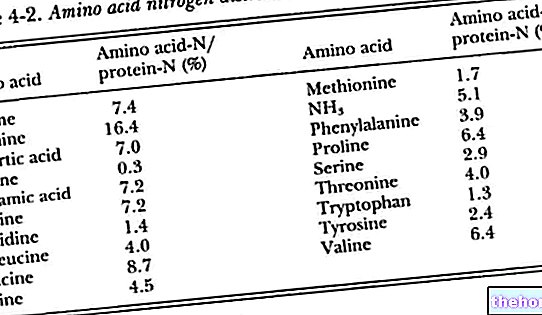Generality
Flaxseed oil is extracted from the seeds of the plant Linum usitatissimum.
From these seeds - particularly rich in mineral salts, proteins and especially lipids - it is possible to extract an oil consisting of 40-60% alpha-linolenic acid (ALA), 15% oleic acid and a small part of other molecules biologically active, such as lignans and glycosides.

The anti-inflammatory activity, the antioxidant activity and the vasoprotective activity constitute the biological pull on which the clinical and preventive use of linseed oil focuses.
Indications
Why is flaxseed oil used? What is it used for?
Anti-inflammatory, anti-atherogenic, anti-thrombotic and antiproliferative properties are classically attributed to linseed oil.
For these reasons, linseed oil is used in the prevention and treatment of constipation, dyslipidemia, hypertension and cardiovascular complications.
Recent studies have also shown the usefulness of flaxseed oil in the management of complex diseases, such as autoimmune diseases and cancer.
The biological properties of linseed oil would clearly be traced back to the presence of ALA, progenitor of the essential fatty acids of the Omega 3 series, known for their marked anti-inflammatory and immunoregulatory activities.
Linseed oil online

A supplement based on flaxseed oil (Linum usitatissimum L.) obtained by cold pressing that naturally contains essential omega-3 and omega-6 fatty acids is available online. Flaxseed oil is also a rich natural source of alpha linolenic acid (ALA), an essential polyunsaturated fatty acid of the omega 3 series. ALA contributes to the maintenance of normal blood cholesterol levels.
Linseed oil promotes the integrity and functionality of cell membranes and has a positive effect on the metabolism of lipids.
The beneficial effect is obtained with a daily intake of 2g of ALA.

Alternatively, you can opt for a linseed oil in softgel format, made with high quality plant extracts and characterized by combinations of nutrients and dosages based on scientific data. Furthermore, the supplement is produced paying attention to optimal bioavailability in order to be well absorbed by the body.
Free of lactose, gluten and yeast, this linseed oil is obtained from the cold pressing of the seeds of the plant of the same name. It is also rich in Omega 3 and Omega 6, useful for the proper functioning of the intestine and general well-being.
The recommended daily dosage is one softgel capsule, to be taken with plenty of water.
Properties and Effectiveness
What benefits has flaxseed oil shown during studies?
Despite the lack of a flourishing literature such as that relating to fish oil, linseed oil has gradually carved out a prominent place in the nutritional field.
Flaxseed oil and cardiovascular function
One of the most important fields of application of linseed oil is cardiology.
The literature would attribute both to ALA and to lignans - of which linseed oil is particularly rich - cardioprotective and vasoprotective functions.
These activities would be carried out through different mechanisms, including:
- Inhibition of platelet aggregation, and less tendency to form thrombus;
- Anti-inflammatory action against the endothelium;
- Hypocholesterolemic action;
- Antihypertensive action.
Flaxseed oil and antiaging medicine
In recent years, the use of flaxseed oil has invaded the world of anti-aging medicine and nutrition.
Underlying this potential is the importance of respecting the appropriate ratios between omega 3 and omega 6 fatty acids, useful in maintaining the quality of cells and tissues. All this would preserve the functionality of entire systems, thus supporting healthy aging.
Flaxseed oil and intestinal health
Although not fully characterized, given the absence of noteworthy clinical trials, linseed oil is traditionally attributed an important function in maintaining normal intestinal function.
This activity, in addition to the emollient effect of the oil on the faeces, would once again be attributable to the presence of lignans, which in addition to normalizing peristalsis, would exercise a protective function against the intestinal mucosa.
Dosage and method of use
How to use flaxseed oil
Linseed oil is now available in various formats: 40-60% ALA capsules, functional foods and oil in liquid form.
The dosage of intake varies depending on the format chosen.
Generally, two teaspoons a day of flaxseed oil can easily satisfy the need for ALA.

We also remind you how - to complete the profile of fatty acids taken - it would be advisable to add linseed oil to a balanced and balanced Mediterranean diet.
In order to preserve the quality of the product, it is recommended to keep the linseed oil away from sources of light and heat.
Side effects
The use of flaxseed oil has generally been shown to be safe and well tolerated.
The most frequently observed adverse reactions would mainly affect the gastrointestinal tract, with dyspepsia and diarrhea.
The incidence of coagulation problems is much rarer.
Contraindications
When should flaxseed oil not be used?
The use of linseed oil is contraindicated in case of hypersensitivity to the active ingredient or to the food from which it was extracted.
Pharmacological interactions
What drugs or foods can change the effect of flaxseed oil?
There are several noteworthy drug interactions between linseed oil and other active ingredients.
More precisely:
- The simultaneous intake of flaxseed oil and aspirin, non-steroidal anti-inflammatory drugs, garlic, ginkgo biloba and oral anticoagulants such as warfarin, could increase the risk of bleeding.
- The contextual intake of linseed oil and fish oil could contribute to the lengthening of coagulation times with all the possible consequences of the case.
Precautions for use
What do you need to know before taking flaxseed oil?
Given the absence of studies relating to the long-term safety profile, the intake of flaxseed oil should be avoided, or supervised by a physician, during pregnancy, breastfeeding and in children.
Due to its antithrombotic effect, flaxseed oil should not be taken in patients with bleeding disorders, in patients on anticoagulant therapy and before surgery.
Sponsored content: My-personaltrainer.it presents products and services that can be purchased online on Amazon and / or other e-commerce. Every time a purchase is made through one of the links on the page, My-personaltrainer.it could receive a commission from Amazon or from the other e-commerce mentioned. We inform you that the prices and availability of the products are not updated in real time and may change over time, so we invite you to check availability and price on Amazon and / or on other e-commerce mentioned.




























